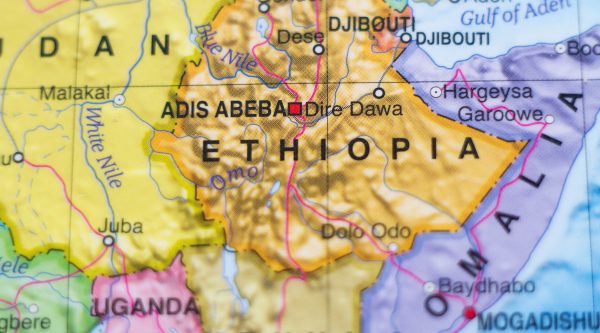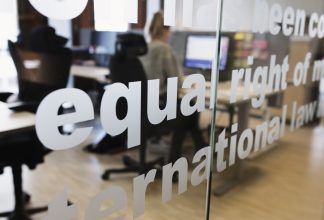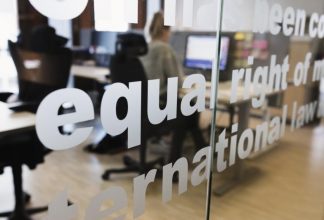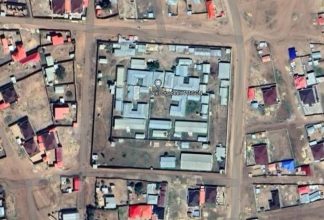Ethiopia: Giving peace more chance, building on positive gains of the election

Notable events are unfolding in Ethiopia carrying opportunities and risks. On 28 June 2021, the federal government declared a unilateral ceasefire in Tigray and withdrew forces. On the same day the regional forces in Tigray returned to their capital, Mekele, and continued to capture other cities. A week before this change of circumstances in Tigray, the country held parliamentary and regional elections in a tense political and security environment.
Civil Rights Defenders is monitoring the situation and call upon all parties to ensure the protection of civilians and delivery of humanitarian aid.
The war in Tigray
The eight months war in Tigray caused gross violations of human rights, some may amount to war crimes. The humanitarian crisis unfolded in the region requires a concerted effort to be reversed. Civilians in the region have been in a dire need of protection and emergency support to reinstate the most basic services necessary to bring a sense of normalcy. It will take a huge effort and long time to rehabilitate the region and mend the wounds – personal, social, and political.
The federal government’s unilateral declaration of a ceasefire in Tigray is a commendable step to halt the tide of war. The government should uphold the ceasefire and take additional measures that lead to a complete cessation of hostilities. The most urgent measure is to ensure the withdrawal of the Eritrean army from the country and facilitate the delivery of humanitarian aid.
It is necessary that the federal, Tigray, Amhara, and Afar regional governments peacefully resolve differences regarding disputed areas that were under the administration of Tigray region before the war.
The situation in Tigray remained fluid and uncertain. Political and territorial flashpoints that led to the war stay potent sources of escalation.
Therefore, ceasefires should be always welcomed whichever side may initiate. Undermining such occasions ultimately denies peace another chance.
We call upon warring parties to take measures that reinforce the ceasefire and improve access to humanitarian aid without further delay. It is only under these circumstances that normalcy can be re-established in Tigray, peaceful settlement of differences commences, and perpetrators of crimes can be hold accountable.
We call upon all parties to give peace more chances; prevent further violations of human rights, massacres, and destruction of properties. We urge the parties to resist the temptation of violence as the means of resolving the current crisis.
The sixth parliamentary and regional elections
The first round of the parliamentary and regional election held on 21 June 2021. The National Election Board of Ethiopia (NEBE) has earlier decided to postpone elections in 72 parliamentary and 213 regional constituencies, out of 507 and 646 respectively, to September for logistic and security reasons. This doesn’t include voters in Tigray region where a separate election was held in September 2020 in defiance of the federal parliament’s decision to postpone the elections.
The elections were first scheduled to May 2020. The reason – covid19 pandemic – and the manner it was postponed had triggered a constitutional debate among actors. There were voices demanding political dialogue and a negotiated settlement between political forces to be prioritised, which implies that the election would be postponed until such agreement is secured.
Compounded by local and regional security concerns, it was feared that the election may be a flashpoint for widespread clashes.
The ongoing war and humanitarian disaster in Tigray region clouded the political atmosphere when voters cast their ballots. Security breakdowns and conflicts in some areas, especially in western Oromia and Benishangul Gumuz regions, had instilled a widespread sense of fear in the run up to the polling day. According to media reports, security stand out as the primary concern for majority of the voters.
The political space for opposition politics has not expanded as much as it was hoped for when the reform started in 2018. Two of the most formidable challengers of the ruling Prosperity Party in the Oromia region boycotted the election citing the imprisonment of their members and widespread crackdown in the region. Opposition parties in other regions consistently report politically motivated administrative and security hurdles. State and non-state actors intimidated and imprisoned journalists that left the media corps nervous to report sensitive matters.
Whereas this is the first election under the newly reinstituted election board. Many observers commended the election board (NEBE) despite its own institutional limitations and unfavourable environment. Some see the public trust in the independence of the election board improving. The board introduced encouraging culture of engaging the opposition even though addressing their key demands and needs appear beyond the current capacity of the board.
The participation of civil society in the election stands out as a remarkable departure from the previous times. The Coalition of Ethiopian Civil Society Organizations for Election (CECOE) alone trained 4,000 observers of which 2,000 dispersed across the country as stationary observers. Observers representing the Africa Union and other regional and international entities field their mission. The European Union cancelled the plan to send observers due to disagreements on “technical” issues which is regrettable.
Official figures on voters’ turnout are not yet available but observers noted that it was far more than anticipated. Voters are seen in several polling stations across the regions waiting long hours until midnight to exercise their right. Logistic problems marred the smooth running of voting on the polling day. However, the first round of the election is concluded without significant security incident.
Local and international observers documented irregularities and noteworthy improvements. Opposition parties filled hundreds of complaints of irregularities to the board, some readying to take their cases to the court. Before the election, an opposition party won a landmark court case against the board on whether its members who are awaiting trials can run for office or not.
Looking forward
Ethiopia can build on the positive gains of this election. There is a long way to institutionalise the democratic aspirations of the public at large.
However, the political challenge in the country is wider and deeper to be improved by holding elections alone.
The government should spearhead an inclusive political dialogue to find a common ground among key stakeholders on the political trajectory of the country.
We call upon the government and other actors involving in national and local dialogues to ensure the meaningful participation of women, independent civil society groups, and minorities.


